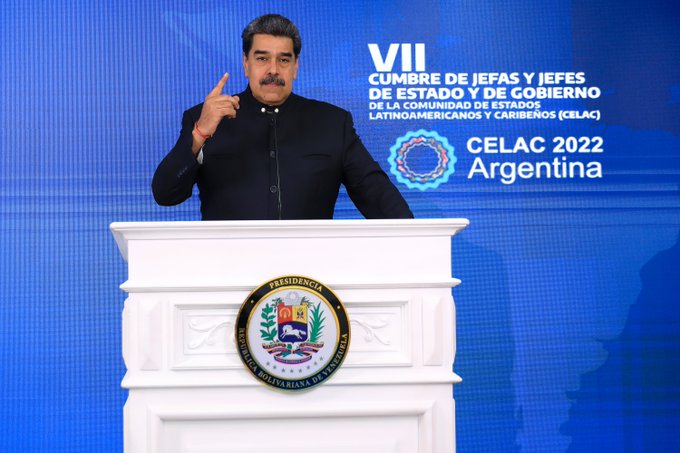The Minister of Labor and Social Security, Raquel “Kelly” Olmos, ratified this Tuesday the commitment of the national government to “work in favor of a greater redistribution of income” for workers and considered that this is achieved with “free joint negotiations”.
“The commitment of our management is to always work for a greater redistribution of income. We had a commitment to recover the income of the Argentines, but the pandemic and the war were two enormous difficulties. It is necessary to hold salary negotiations in free parities in order to break high inflation,” the minister said in an interview with Télam.
The official indicated that the increase in the cost of living is always “an impediment to the recovery of wages” and assured that they are working along this line with the Ministry of Economy headed by Sergio Massa.
“There is a confrontation of models and the macrismo is representative of the de facto powers of Argentina. We have to be pedagogical in this task and debate and explain the two projects to the popular majorities”
The head of the labor portfolio affirmed that there were “inherited difficulties” from the government of former President Mauricio Macri that hindered reaching the goals proposed by the Executive of Alberto Fernández when he took office in December 2019.
“There is a model that expressed the macrismo with which they transfer the capital of the Argentines, mortgaging the future of several generations.. They express a social sector that wants to be part of a global elite that is currently the one that concentrates wealth,” said the official.
For Olmos, the Macrista indebtedness model “transferred the surplus of Argentines and impoverished the entire population” and the balance it left behind was “a loss of more than 20% of the purchasing power” of Argentines.
“In the framework of the pandemic and the war in Europe, when in the world there was a very high loss of income by workers, From the national government we managed to ensure that this trend did not become accentuated in Argentina. It remains to recover what was lost during the macrismo“, he stressed.
The Minister of Finance of the province of Buenos Aires, Pablo López, highlighted last week the 19 consecutive months of employment growth in the private sector and assured that this dynamic “pulls” the generation of registered jobs in Argentina.
In this regard, Olmos stated that “destroying is very fast and building is a slow task”, but he indicated that “a level of recovery” of employment in the country is indeed verified.
“The parities arise from free negotiation between the trade union sector and the employers. We believe in the need to reduce inflation and thus improve the purchasing power of wages”
In this sense, he considered that it is “the necessary precedent” to “advance with the revenue recovery goal.”
The job owner also He denied that the national government is going to put a ceiling of 60% on parities in 2023 and assured that “there is no” an established limit for negotiations between employers and union representatives.
“The parities arise from the free negotiation between the union sector and the employers. We believe in the need to reduce inflation and thus improve the purchasing power of wages,” he said.
Olmos also referred to the labor reform projects that are promoted by politicians from Together for Change (JxC) and evaluated that they are initiatives that promote “the elimination of rights for workers”.
“When these issues are raised, we get defensive. We clearly know what they are proposing. We recognize that there is a technological evolution that has a different impact on different activities and that is why we have a proactive attitude when this is discussed and negotiated in the collective agreements of work,” said the minister.
In relation to this context, the official stated that the changes in the labor relations system must occur when “there is an agreement between the organized workers and the business chambers.”
The minister recalled the changes that occurred last year in the collective agreements of the automotive and oil sectors.
“In the case of automotive companies, there were changes to reorient production towards exports. The oil tanker agreement sought to make better use of the resources that exist in the Vaca Muerta field. It must be understood that evolution requires change, but in our conception it is something that organized workers and employers must negotiate. It cannot be something that is imposed by a legislative mechanism,” he stated.
“The question of work on platforms is a debate promoted by the International Labor Organization (ILO) to which there is no clear answer. Our initial doctrinal position is that we have to move forward so that workers have a social protection system”
For the minister, it is also key to give importance today to employment in platforms and applications.
“The issue of platform work is a debate promoted by the International Labor Organization (ILO) to which there is no clear answer. Our initial doctrinal position is that we have to move forward so that workers have a social protection system“, he explained.
As for his management ahead of the 2023 presidential elections, Olmos reiterated that the task of his portfolio is to “break inflation” and improve “the well-being of the population.”
“We have a management commitment that is improve people’s lives in order to break inflation and that this has a positive impact on the most humble sectors“, he stressed.
Olmos considered that the Frente de Todos (FdT) has to “face a strong political debate” this year and in it “affirm which are the strategic lines that allow us to work for the emancipation of the homeland.”
“Breaking democracy is easily achieved, but rebuilding both national and continental institutional systems (such as Celac) is an arduous task but it is the only possible one so that evolution is in favor of the needs of the peoples”
“There is a confrontation of models and the macrismo is representative of the de facto powers of Argentina. We have to be pedagogical in this task and debate and explain the two projects to the popular majorities”he proposed.
Finally, the Minister of Labor referred to the inauguration of the VII Summit of Heads of State of the Community of Latin American and Caribbean States (Celac) in Buenos Aires and the meeting she had with the President of Brazil Luiz Inácio Lula da Silva.
“It creates a huge expectation in me, we know that political processes are slow. Breaking democracy is easily achieved, but rebuilding both national and continental institutional systems (such as Celac) is an arduous task, but it is the only possible one so that evolution is in favor of the needs of the peoples.“, he concluded.










